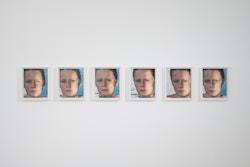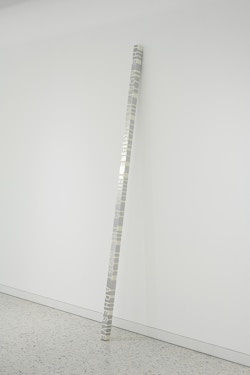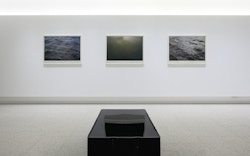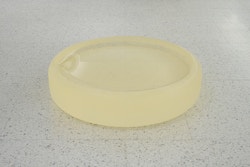Roni Horn
15 April—16 July 2023
Winsing Art Place, Taipei, Taiwain
Roni Horn's work is characterised by a sparse visual language that is often imbued with traces of her personal experiences and interpretation of her environment. Since the late 1970s, Horn has used a variety of mediums—including drawing, photography, sculpture and installation—to investigate the limits and contours of identity and perception.
Horn's experiences with the landscapes and people of Iceland, which she has visited regularly since 1975, have become one of the most enduring sources of inspiration in her practice. A playful relationship to doubling is a common touchpoint in Horn's work as well. The artist often presents her installations and photographs side-by-side or in pairs, heightening the similarities and differences between the works. Often replete with textual references—from Emily Dickinson to Flanery O'Connor and Anne Carson—Horn's work offers a semiotic investigation into the relationship between language and material.
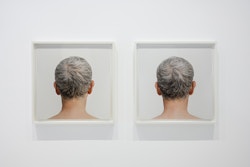
'I have always felt androgyny as central to my relationship with both myself and the work. As far as an individual's experience with a given work goes, I throw the issue of self-identity back out to the viewer.'—Roni Horn
The exhibition at Winsing Art Place features an array of Horn's most significant sculptures and photographs, including several cast-glass works. Horn first began to produce these sculptures in the mid-1990s and they quickly became foundational to her wider practice. To create these works, molten glass is annealed in large moulds over the course of several months. The result, which can be seen in the current series of works, are sculptures that exhibit a dynamic range of hues and luminosity, appearing at once solid and fluid. This is particularly evident in 'Untitled ('At night her head, heavy with unappeased cravings, sat on her shoulders, like a coconut with its mat of monkey-like hair growing freakishly inside the shell..')', which draws its title from a novel by Robert Musil. Another piece, 'Black Yes', one of her black cast-glass sculptures, is a counterpoint to some of the more colourful works. Like much of Horn's oeuvre, the glass sculptures probe the ever-evolving nature of identity and the experience of transience through the transformation of nature and form.
